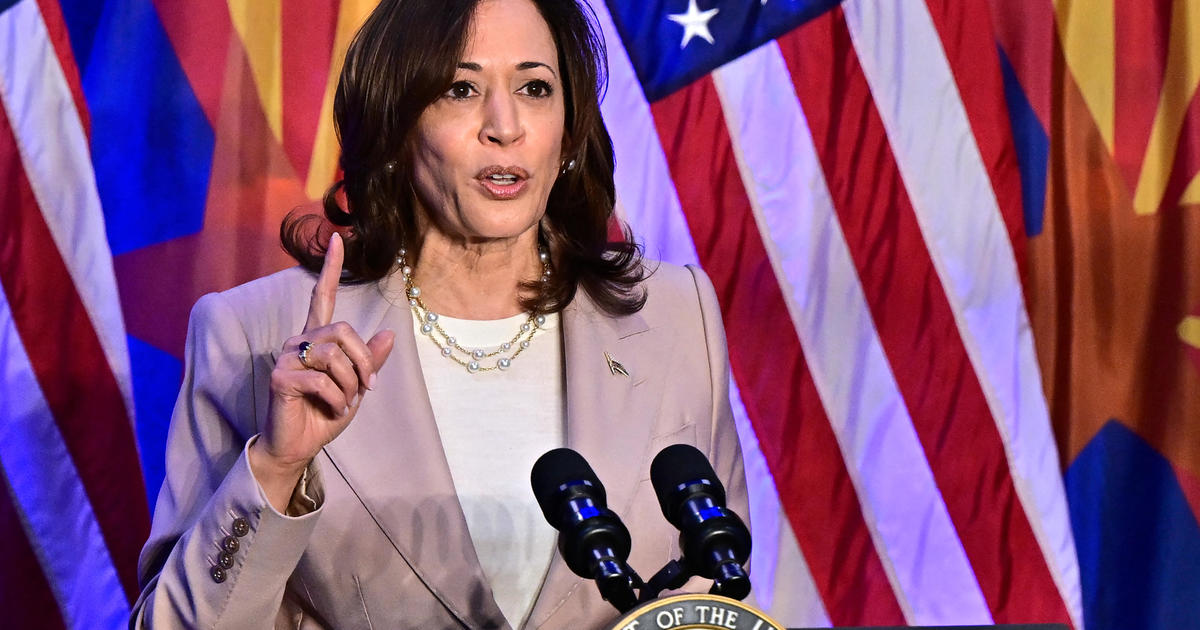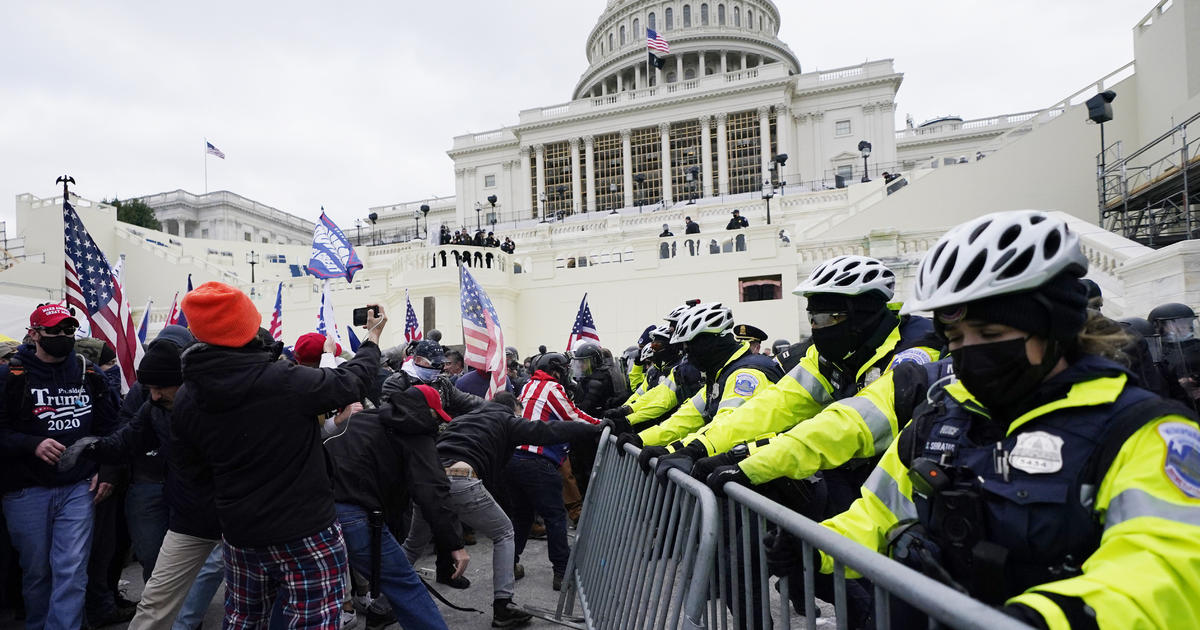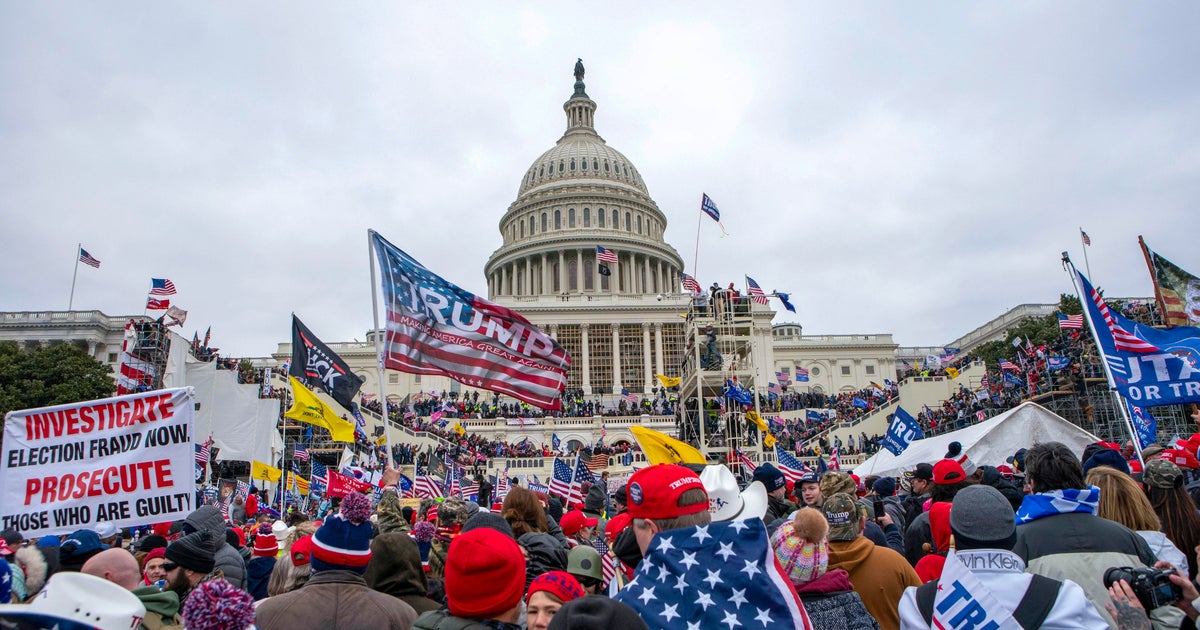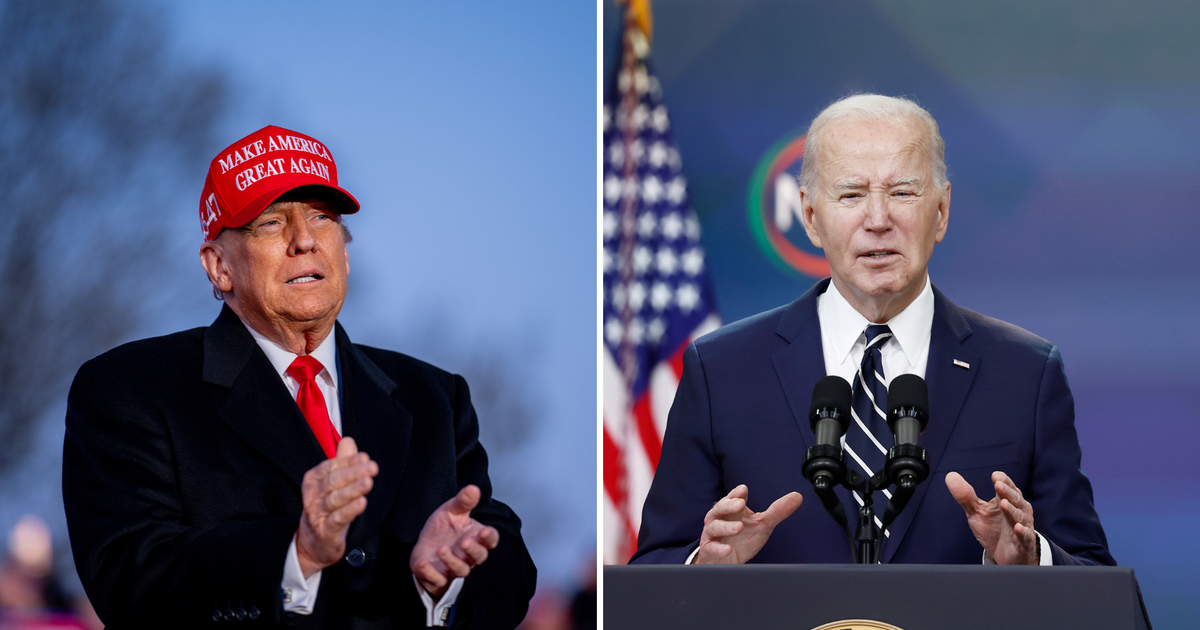What is the 25th Amendment, and how could a president be removed from office?
In the wake of Wednesday's violent storming of the U.S. Capitol by Trump supporters who breached security and forced Congress to evacuate as lawmakers counted electoral votes to certify President-elect Joe Biden's victory, some are calling for President Trump to be removed from office for his role in inciting the unrest.
The chaos erupted shortly after Mr. Trump gave a speech once again falsely claiming to have won a second term and vowing "we will never concede." He encouraged supporters to march to the Capitol. As the chaos ensued, Mr. Trump told his supporters to go home but repeated the false, inflammatory claim that the election had been stolen.
Now it's not just Democrats denouncing his behavior and considering taking action. Republican Congressman Adam Kinzinger of Illinois said Thursday, "It's time to invoke the 25th Amendment and end this nightmare." Some members of Mr. Trump's own Cabinet are discussing the possibility of invoking the 25th Amendment, CBS News senior foreign affairs correspondent and "Face The Nation" moderator Margaret Brennan reports.
"People around the president, some of the highest members of our government, are discussing the possibility of invoking the 25th Amendment, which would remove the president from office and would make the vice president commander-in-chief for the remaining days of the Trump presidency," Brennan said during special coverage of the protests Wednesday.
"That is the theory they talked about, that is the idea of their level concern right now, frankly, of what has happened during the past 24 to 48 hours, what may happen in the remaining days, remaining weeks of the Trump presidency and any related national security concerns," she said.
What is the 25th Amendment?
The 25th Amendment was ratified on February 10, 1967. It is broken up into four sections, which detail the steps and policies for removing or replacing a president, either temporarily or permanently. The first section states that if a president dies or resigns or is removed from office, the vice president shall become president.
Section 2 explains that the if the office of the vice president is vacant, the president should nominated a new one, who must be confirmed by Congress.
Section 3 allows the president to temporarily transfer power to the vice president, and Section 4 explains how Cabinet members and the vice president can invoke the amendment to remove a president who is unable to fulfill his role.
"Section 4 addresses the dramatic case of a President who may be unable to fulfill his constitutional role but who cannot or will not step aside," write law professors Brian C. Kalt of Michigan State University and David Pozen of Columbia Law School, for the National Constitution Center.
Kalt and Pozen explain that the group that can invoke the 25th Amendment is made up of the vice president and a majority of president's Cabinet, or another body that Congress may designate.
If this group determines the president is "unable to discharge the powers and duties of his office," the vice president immediately becomes acting president. The president can object by pronouncing himself able, in which case the deciding group has four days to disagree.
If the group disagrees with the president's assertion that he is fit to serve, the vice president keeps control and Congress has 48 hours to vote on it. If two-thirds majorities of both chambers agree that the president is unable to serve, the vice president continues acting as commander-in-chief.
Still, there are several challenges in invoking the 25th Amendment — mainly, what counts as presidential "inability," Kalt and Pozen explain.
The framers of the Constitution didn't specify what would constitute as presidential disability, but did decide that the vice president and Congress had important and distinct roles in determining it.
History of the 25th Amendment
The 25th Amendment was adopted in the aftermath of the assassination of President John F. Kennedy to help clarify the chain of events required if the president or vice president needs to be replaced.
It was invoked for short periods of time when Presidents Ronald Reagan and George W. Bush underwent medical procedures. Mr. Reagan and Mr. Bush transmitted letters to Congress that temporarily delegated authority to their vice presidents. The transfer of power only lasted several hours until the presidents claimed it back.
Section 2 of the amendment has also been used to fill a vacancy in the vice presidency, when Gerald Ford was nominated after the resignation of Spiro T. Agnew in 1973, and again after Ford succeeded Richard Nixon as president and nominated Nelson Rockefeller as his replacement.
In 2017, Congressman Jamie Raskin, a Democrat from Maryland, sponsored legislation that sought to define the "other body" mentioned in the 25th Amendment.
The act would create a commission empowered to examine the sitting president and report to Congress on the president's capacity. This commission would bypass the need for the vice president and a majority of Cabinet members to go to Congress and declare the president unfit. Raskin re-introduced a similar bill in 2020.
Possibility of invoking the 25th Amendment
Brennan reported that invoking the 25th Amendment has been discussed by Cabinet members but has not been brought to the vice president as a formal proposal.
"These are early discussions of it, but it is incredible that it is even at that level. I am not talking about Democrats speculating, I'm not talking about political pundits doing so. These are members of the Trump Cabinet," she said Wednesday night.
Furthermore, it is unclear if there would be support for such an action by two-thirds of the members of the House and Senate in the event it were attempted and President Trump chose to fight it.
The idea of removing Mr. Trump from office in the final days of his term has gotten the backing of a major business group, the National Manufacturers Association, which represents some of the biggest corporations in the country. The group's president and CEO Jay Timmons condemned the violence and said in a statement, "Vice President Pence, who was evacuated from the Capitol, should seriously consider working with the Cabinet to invoke the 25th Amendment to preserve democracy."




